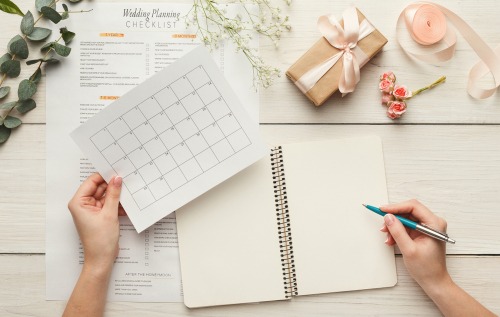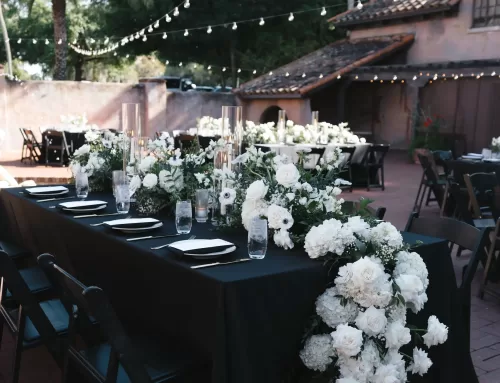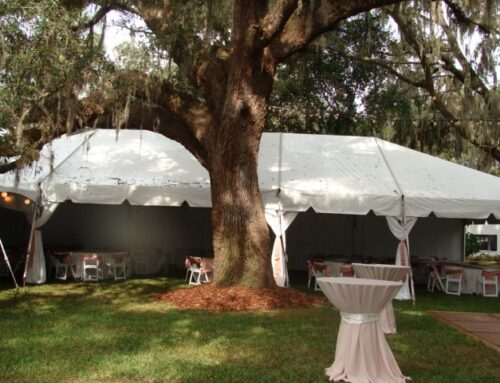Planning an event, whether it’s a birthday party, corporate gathering, or wedding, can feel overwhelming. With numerous details to manage, staying organized is key to ensuring a smooth and enjoyable celebration.
That’s where an event planning checklist comes in. This handy tool helps you stay on track, avoid last-minute stress, and create an unforgettable experience for your guests.
Why You Need an Event Planning Checklist
An event planning checklist is an essential resource for keeping track of every detail and staying organized throughout the planning process. It helps you prioritize tasks, set deadlines, and ensures nothing is overlooked.
Whether you’re a seasoned event planner or planning your first celebration, having a checklist can turn a chaotic planning process into a manageable and enjoyable one. It serves as your roadmap, ensuring you cover all the bases and stay on schedule.
Step-by-Step Event Planning Checklist
1. Define Your Event Goals and Budget
Before diving into the specifics of the event, it’s important to define your goals and establish a realistic budget. What is the purpose of the event? Is it to celebrate a milestone, raise awareness for a cause, or simply to bring people together? Your goals will guide the overall theme, size, and scale of the event.
Along with that, set a budget that includes all the potential expenses, from venue rental to catering costs. Having a clear understanding of your budget will allow you to make informed decisions and avoid financial surprises.
2. Choose the Perfect Date and Venue
The date and venue are among the most critical decisions when planning an event. Consider the availability of your target guests and any conflicts with major holidays or other local events. Once you’ve picked a date, choose a venue that fits the event size and atmosphere you envision.
Whether it’s an outdoor space, a conference room, or a formal banquet hall, the venue should align with the event’s goals and theme. Don’t forget to consider accessibility, parking, and any required permits.
3. Create a Guest List and Send Invitations
A guest list is the foundation for many of your other planning decisions. Determine how many people you want to invite based on your venue size, budget, and the type of event you’re hosting. Once you’ve compiled the list, send out invitations with clear details regarding the event time, location, dress code, and RSVP instructions.
Modern digital invitations are often efficient, but for more formal or personal events, consider traditional printed invitations. Be sure to track RSVPs so you can plan accordingly.
4. Plan the Event Theme and Décor
The theme and décor help set the mood and tone for the event. Whether it’s a formal affair, a casual gathering, or a themed party, your décor should reflect the theme. Start by choosing a color scheme, deciding on centerpieces, and considering lighting and other elements like table settings, flowers, and signage.
Don’t forget the little touches, such as branded napkins or personalized items, which can enhance the guest experience and make your event stand out.
5. Arrange Catering and Refreshments
Food and drink are a major part of any event. Based on the size of your guest list, select the type of catering that suits the occasion, whether it’s a buffet, plated dinner, or a cocktail reception. Keep in mind dietary restrictions or preferences of your guests, and offer a variety of options, including appetizers, mains, and desserts.
You may also need to arrange for bar service or additional refreshments like water stations or coffee stands.

6. Organize Entertainment and Activities
Entertainment and activities keep guests engaged and contribute to the overall atmosphere. Depending on the nature of the event, this could include hiring a DJ, booking a live band, organizing games, or arranging guest speakers or performers.
For corporate events, consider ice-breakers or team-building exercises, while for social gatherings, interactive activities like photo booths or trivia can add a fun element. Tailor the entertainment to the audience and type of event you’re hosting.
7. Coordinate Rentals and Supplies
Certain events require rentals to meet specific needs, such as tables, chairs, linens, and sound systems. Research local rental companies to secure the necessary equipment, making sure to consider the number of guests and the style of the event.
This might also include items like tents, stages, or decorations that help bring your event vision to life. Confirm availability and delivery times to ensure everything arrives well ahead of your event day.
8. Confirm All Bookings and Vendors
As your event day approaches, double-check all your bookings, including the venue, catering, entertainment, and vendors. Confirm their arrival times, special requests, and any required setups. It’s crucial to ensure that every vendor is aligned with your event timeline.
Having a checklist of all the vendors, their contact information, and key details will help you stay organized and on top of any last-minute questions.
9. Develop a Detailed Event Day Schedule
Create a comprehensive schedule for the event day, covering all the critical tasks from setup to the event’s conclusion. Include vendor arrivals, sound checks, the timing of each part of the event (e.g., speeches, meals, or performances), and when guests should expect different activities to take place.
Share this schedule with vendors, staff, and key participants to ensure everything runs smoothly. A detailed event day schedule is the key to managing your time effectively and ensuring everything unfolds as planned.
10. Prepare for the Unexpected with a Backup Plan
Even with thorough planning, things can go wrong on the day of the event. From weather changes to technical issues, having a backup plan is essential. If your event is outdoors, ensure you have access to a tent or indoor space in case of rain. Have extra equipment or supplies on hand, such as additional seating, power sources, or first aid kits.
Prepare for every possibility to ensure your event goes off without a hitch, no matter the challenges.
Essential Tips for a Successful Event
- Start early: The earlier you start planning, the more time you have to secure vendors, book your venue, and manage all the details without rushing.
- Stay flexible: Even with the best planning, you might need to adjust plans as you go. Be open to changes and adapt as needed.
- Delegate tasks: Don’t hesitate to delegate responsibilities to reliable friends, family, or staff members to lighten your load and ensure everything gets done.
- Stay organized: Keep all event documents, contracts, and contacts in one place to avoid losing track of important details.
Ready to Plan Your Event? Start with This Checklist!
At Party Plus Tents and Events, we specialize in providing expert event planning services, rentals, and support for every kind of celebration. From coordinating vendors to providing top-quality rental items like tents, tables, chairs and linens, we help make your event seamless and stress-free.
Let us handle the details while you enjoy your celebration. Contact us today!



